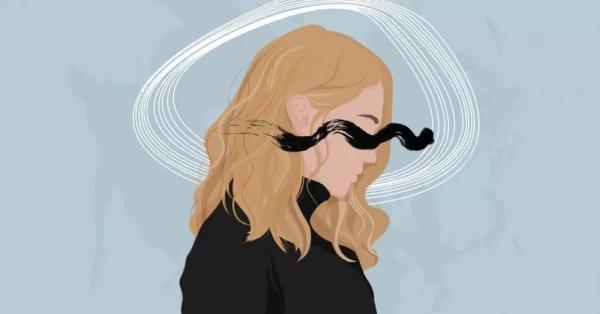An Antidote For Overthinking
Curated from: psychologytoday.com
Ideas, facts & insights covering these topics:
11 ideas
·15K reads
112
9
Explore the World's Best Ideas
Join today and uncover 100+ curated journeys from 50+ topics. Unlock access to our mobile app with extensive features.
Cognitive Distortions
A basic principle of every non-pharmaceutical treatment for depression and anxiety involves putting some distance between oneself and one’s emotions. Psychodynamic therapy, mindfulness, meditation, and exercise, to name a few, create space between us and what is running through our heads. Cognitive Behavioral Therapy (CBT), one of the most widely studied interventions, teaches patients to identify and challenge faulty habitual thinking patterns, known as cognitive distortions, such as all-or-nothing thinking and emotional reasoning.
191
2.24K reads
Feelings Are Real But They Might Not Be True
Cognitive Behavioral Therapy entails learning that thoughts are not always a reflection of reality. Just because we feel a certain way does not necessarily make it true. Put simply: Feelings are real but they might not be true. This is not gaslighting . This is Psychology 101.
208
1.78K reads
The Hallway Snubber
Our beliefs, and the feelings that they give rise to, impact how we interpret a situation as well as our subsequent behavior. Imagine passing someone in the hallway who doesn’t say hello. You might assume that they dislike you and this hurts your feelings. As a result, you decide the person is unfriendly and avoid future interactions with them. You ask yourself, “Why bother making an effort with someone like that?” You might even tell yourself that the person is toxic and undeserving of your goodwill.
175
1.47K reads
“What Else Could Be Going On Here?”
Maybe the hallway snubber has a deadline to meet. Maybe they were up late last night with a sick child. Maybe they just didn’t sleep well. Cognitive Behavioral Therapy teaches us to consider other possibilities—indeed it may be that the person dislikes you but there are other explanations as well.
175
1.36K reads
Cognitive Fusion: Our Reality Is Fused With Our Emotions
Acceptance and Commitment Therapy (ACT), a close cousin of cognitive behavioral therapy, offers some useful data-driven strategies to detangle ourselves from our thoughts and feelings. Most of the time, we live in a state of cognitive fusion, fully believing our thoughts and feelings without giving a second thought. Put simply, our reality is fused with our emotions. These De-fusion Exercises as they are known, create some space and perspective.
177
1.3K reads
Defusion Exercise #1: The Running Sushi
Picture your thoughts as the many small plates on a conveyor belt in a sushi restaurant. All the dishes pass by one after another, the same way your thoughts appear and go away one after another. You can choose to reach for the plates of sushi (thoughts) or let them pass by. If they reappear later, you still don’t have to grab them.
200
1.27K reads
Defusion Exercise #2: The Fish Hook
Thoughts are like fish hooks, and you are a fish swimming around in the water. You can’t control how many fish hooks you come by, but you can decide whether you swim past them or take the bait. It is impossible to avoid some thoughts as you go through life, and sometimes, you will take the bait. But you can still choose to unhook yourself and swim past the hooks.
191
1.17K reads
Defusion Exercise #3: Clouds In The Sky
Thoughts are like clouds in the sky. They come and go, and there is nothing you can do to influence them. Trying to push them away or worry about them is not necessary or helpful. The best thing is to let clouds occupy their own space and allow them to float by. Try doing the same thing to your negative thoughts and feelings.
188
1.1K reads
Defusion Exercise #4: Passengers On The Bus
Imagine yourself driving a bus. Treat difficult thoughts as rowdy, annoying passengers. See if you can keep driving, rather than stopping when they want or trying to kick them off. Can you stay focused on driving your bus safely to your destination?
182
1.1K reads
Defusion Exercise #5: Thought Trains
Imagine your anxious thoughts are like trains arriving at a railway station. Rather than climbing on board, stay on the platform, and watch the trains go by.
178
1.1K reads
Defusion Exercise #6: Watch Yourself Or, Put On Goggles
To defuse a negative thought such as “I am a failure,” say instead, “I’m having the thought that I am a failure.” To defuse it even more, add, “I notice I am having the thought that I am a failure.” Think of this exercise as the equivalent of putting on goggles when swimming in the sea. The result is less blur and more clarity.
188
1.07K reads
IDEAS CURATED BY
CURATOR'S NOTE
Most of the time, we live in a state of cognitive fusion, fully believing our thoughts and feelings without giving a second thought. Put simply, our reality is fused with our emotions. De-fusion Exercises, as they are known, create some space and perspective.
“
Similar ideas
9 ideas
9 Ways to Cope With Intrusive Thoughts
psychcentral.com
1 idea
Train your mind to lower Anxiety | Firstinspire.com
firstinspire.com
8 ideas
Read & Learn
20x Faster
without
deepstash
with
deepstash
with
deepstash
Personalized microlearning
—
100+ Learning Journeys
—
Access to 200,000+ ideas
—
Access to the mobile app
—
Unlimited idea saving
—
—
Unlimited history
—
—
Unlimited listening to ideas
—
—
Downloading & offline access
—
—
Supercharge your mind with one idea per day
Enter your email and spend 1 minute every day to learn something new.
I agree to receive email updates
